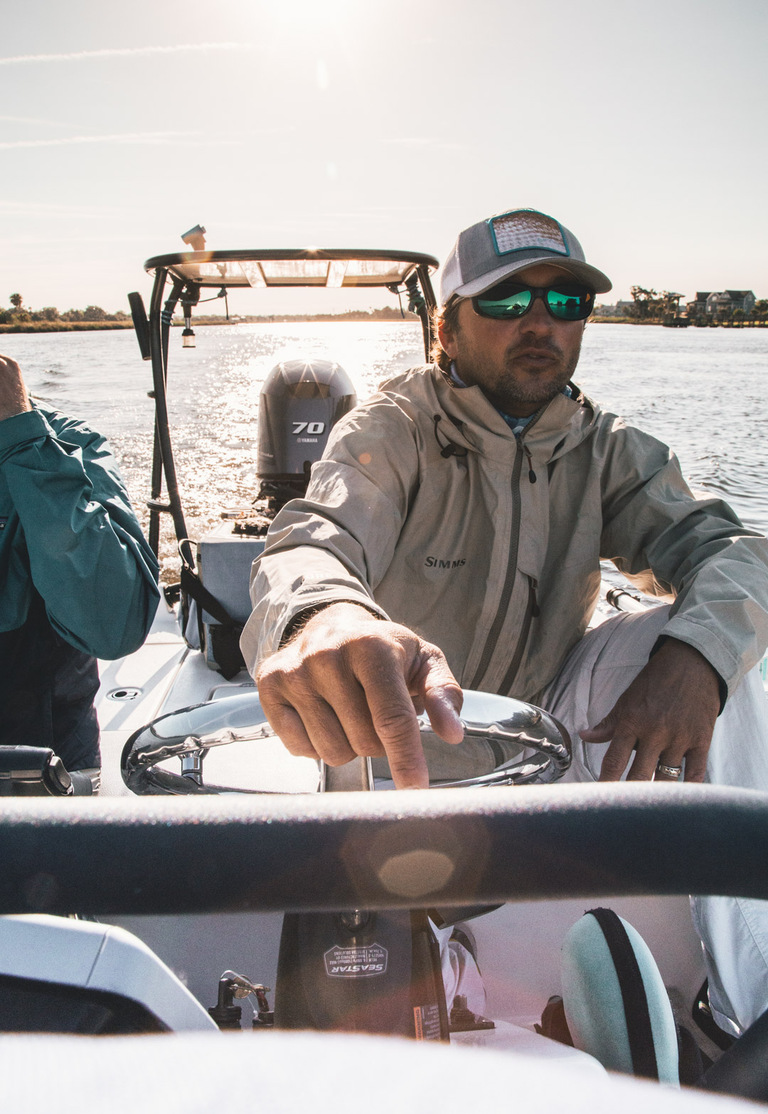Out with the Black Drum in with the Red Drum! March and April are prime time up and down the Nature Coast for a variety of species including Speckled Trout, Spanish Mackerel, Tripletail, Snapper, and Cobia but if you're looking for a heart pounding experience these next coming months spin or fly fishing for tailing Redfish in extremely shallow water will be coming into full swing as water temperatures continue hovering in the 70's . Tailing Redfish? That's right during the extreme low tides of March and April Huge Schools of Redfish congregate on many of the local flats and hidden backcountry bayous gorging themselves on all the shrimp, crabs, and bait fish they can get their mouths on.
Where can you find such an event? When looking for tailing Redfish you obviously need water shallow enough to witness this event, but it is important to remember that these fish also need water to swim in. Backcountry waters with depths of less than 2 feet are great starting places to begin looking. When looking for tailing Reds the most important aspects to look for are: Hard Bottom, Moving Water, and Baitfish.
Hard Bottom is important because this is the primary area that Redfish call home throughout the year. Redfish are scavengers so they do not want to have to wander far to find a meal. When a prime hard bottom location has been spotted keep on the lookout for large fish pushing and even fish bumping into sparse saw grasses that may be protruding from the bank. Redfish love feeding on the mud minnows that call these sparse grasses home and it is not uncommon on a slick day to find tails swaying amongst the grass beds off of Homosassa and Crystal River.
Moving water is also another important aspect to consider because moving water oxygenates surrounding waters. Areas with a lot of moving water will be highly visible due to the turtle grass creating current breaks along many of the shorelines. Pay attention to what is on the surface as well. If you see fallen mangrove leaves on the surface moving at all chances are you have plenty of moving water. On the contrary if you pole or troll into a creek and find nothing but dirty muddy water on the surface this is a key indicator that your cove is loaded with stagnant, nonoxygenated water. Less oxygen equals less activity.
Finally, if there's no available food sources in an area, there are probably no Redfish (or at least feeding Redfish). Mullet although large in size are an excellent indicator that there's probably plenty of baitfish on your shoreline. Smaller mullet make an excellent meal for larger Redfish, while larger mullet when in Big schools tend to stirrup the bottom revealing hiding shrimp and crabs that Redfish find a delicacy.
Once you have found your school of tailing Redfish it's important to take a few deep breathes and try your best not to throw your bait, lure, or fly onto the heads of your particular school of fish. REDFISH DO NOT LIKE THEIR FOOD ATTACKING THEM!!! Berkley Gulp Shrimp Jerkbaits and Smaller shrimp and crab fly patterns work great especially in clear calm waters. Ideally you should select a bait rig, lure or fly pattern that will present its self with as minimal amount of splash as possible. Chances are if you're not able to get them on a lure or bait that is in front of their face, you will be able to get a better look using a lure that will make a little more noise to get their attention. Walk-the-dog style of lure work best for triggering a reaction strike. Zara Spooks and Rapala Skitter-Walks are tops on my boats and they make great "when all else fails baits."
So if you are ready for one more warm up before the Silver King arrives in May, sight fishing for tailing Redfish may be right up your alley. If you're interested in seeing what this exciting style of fishing is all about feel free to call Red Hot Fishing Charters today!!! We can Hook You Up!!!
Capt. Kyle Messier
(352) 634-4002
kylemessier@yahoo.com
WWW.REDHOTFISHINGCHARTERS.COM

